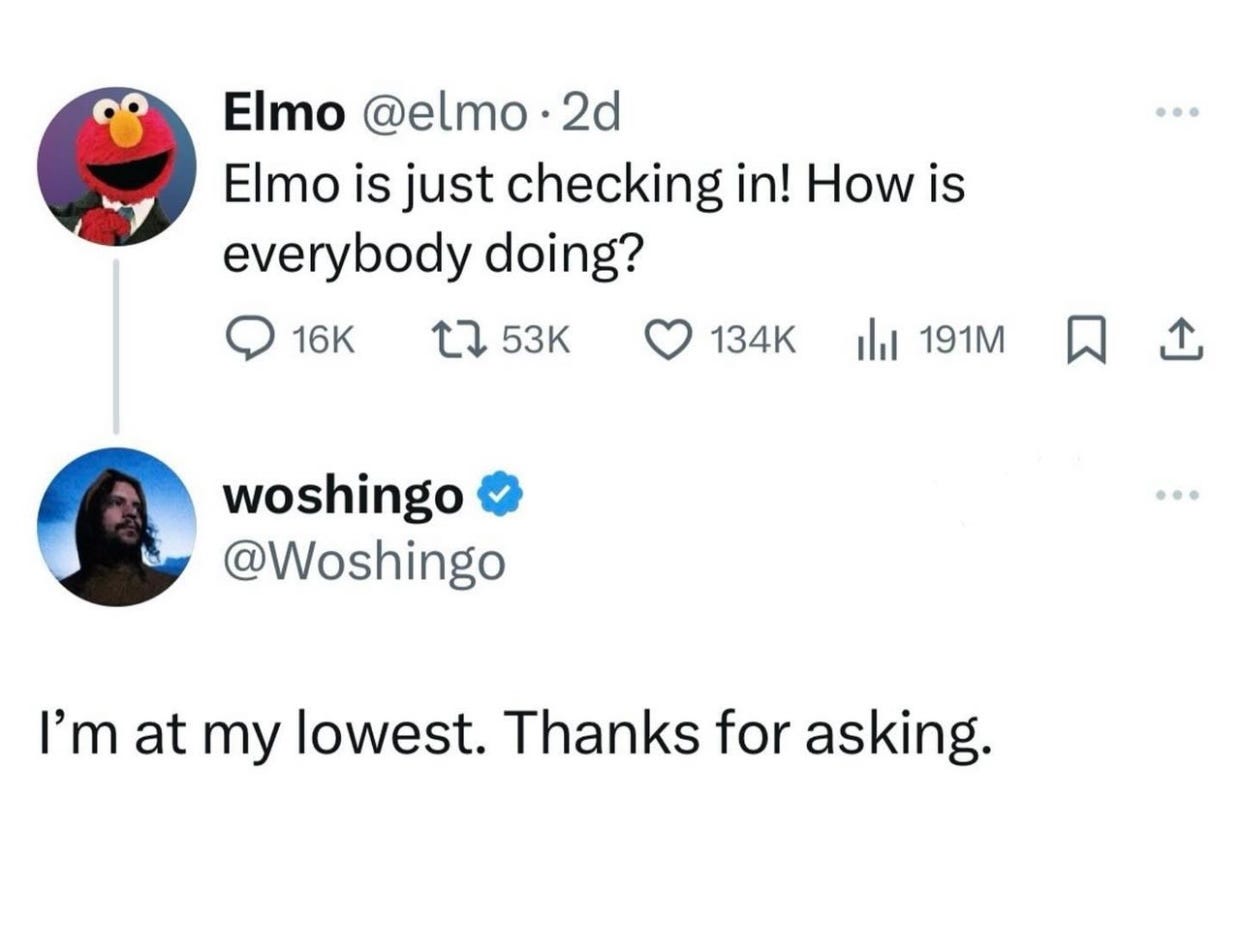How Are You? (for Real)
Turns out Elmo is for adults, too.
Last week I got a text from a friend: “People are losing their minds on Elmo…did you see it?” As I glanced at my phone in between patients, my first thought was “Why am I getting a text about Elmo?” My next thought was “Oh no…was Elmo canceled?!”
Thankfully, Elmo is not canceled, phew. But, he did find himself inside the bowels of the internet for a minute. Doing as Elmo does, he sent a caring tweet to his 500,00+ Twitter followers checking in and asking how folks were doing. Only this time, the tweet went viral, receiving nearly 200 million impressions and over 16,000 responses — many of them pretty dark. The responses ranged from harsh life conditions, general malaise, cries for compassion, and even existential dread from Rainn Wilson.
It makes sense that in a country with an ongoing mental health crisis a tweet from beloved childhood puppet would incite a dramatic response. And, there is a long history of puppets being used in psychiatry and psychotherapy (for adults and for kids). Yet, the speed at which this tweet took off, and the gleefulness with which the memes were shared reminded me just how many folks are not only struggling, but struggling alone or in silence.
It’s for sure an indictment of our mental healthcare system that a Twitter conversation with a Sesame Street character reads like a therapy session.1 That said, there are changes we can make at the personal level to help us live more connected lives.2
Most of us are asked numerous times a day: How are you? And yet, because of time scarcity or guilt around burdening others, we answer with a “good” or, maybe, an “okay.” Or, perhaps you are a caregiver yourself — a mom, a son or daughter, responsible for a family member. When you are a caregiver, it’s rare to have someone stop and ask how YOU are doing; instead, folks ask about the people in your charge.
So, on the heels of Elmo’s misfortune, I am sharing a some pointers on how to approach answering the question “How Are You?” with more truthfulness and transparency, as well as how to ask the question with an openness to hearing a real response.
Let’s dive in.
Keep reading with a 7-day free trial
Subscribe to Real Self-Care to keep reading this post and get 7 days of free access to the full post archives.




